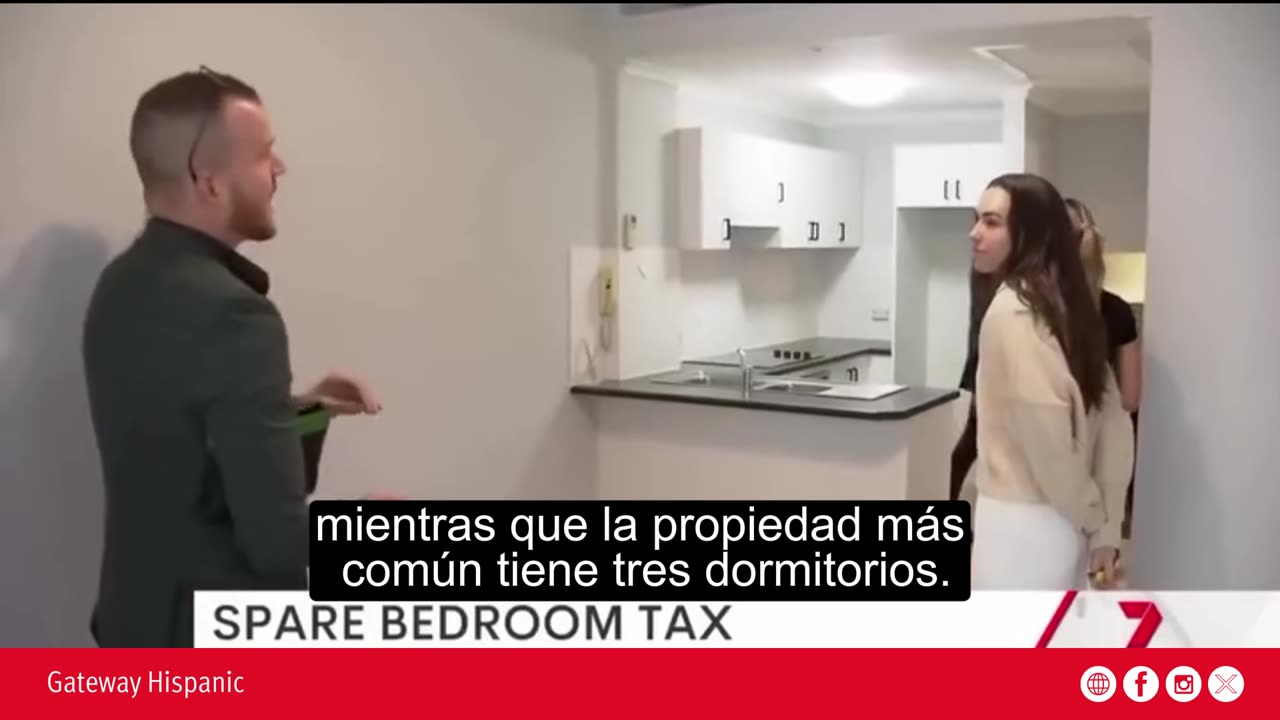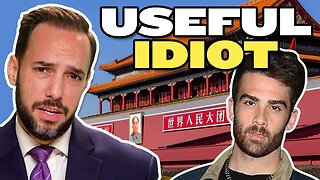Premium Only Content

Australia Considers Tax on Empty Rooms to Encourage Efficient Use of Housing
A recent study has revealed a significant mismatch between the average household size and the size of available homes in the country. According to the research, one-third of Australian households consist of only two people, while the most common property remains a three-bedroom home. This discrepancy has led public policy and urban planning experts to propose innovative measures to optimize the use of existing housing.
Proposal for a Tax on Vacant Rooms
Among the alternatives under discussion, the possibility of implementing a tax on vacant rooms stands out. The main idea is to incentivize downsizing among smaller families and empty nesters, encouraging them to move into smaller homes. This type of levy would act as an economic incentive to free up currently underutilized space, increasing the available housing supply and potentially helping to moderate prices amid growing demand.
Stamp Duty Removal as a Complementary Measure
To balance the proposal, experts suggest pairing this tax with the removal of stamp duty, which would reduce the cost of acquiring a new home better suited to household size. The combination of these measures aims to create an environment where residential decisions align with market efficiency and optimal use of housing stock, avoiding wasted space and promoting a more dynamic market.
Challenges of the Mismatch Between Homes and Households
The study highlights that the problem is not only the quantity of properties but also their distribution and size. While three-bedroom homes remain the most common, many of these houses are occupied by only two people, creating vacant rooms that represent an underutilized resource. This mismatch contributes to pressure on rental and purchase prices, as the effective supply of homes suitable for actual household sizes is more limited than general statistics suggest.
Potential Impact on Society and the Economy
Implementing a tax on empty rooms could have significant implications. On one hand, it would encourage family mobility and allow larger homes to be redistributed more efficiently, benefiting those seeking properties that fit their household size. On the other hand, removing stamp duty could stimulate the purchase of new homes, energizing the housing market and generating indirect economic benefits for construction and related services.
Conclusion: A Step Toward a More Efficient Housing Market
The debate in Australia over taxes on empty rooms and the removal of stamp duty underscores the need for policies that respond to demographic and structural changes in households. Evidence shows that without intelligent interventions, the mismatch between home sizes and household sizes will continue to put pressure on supply and prices. With well-designed incentives, it is possible to achieve a more balanced, efficient housing market tailored to the real needs of Australian citizens, promoting mobility, access, and responsible use of residential space.
-
 LIVE
LIVE
Wahzdee
2 hours agoTHE "I WON'T QUIT" STREAM... FAILED | Tarkov 1.0 Broke Me | Playing Liar's Bar
119 watching -
 10:46
10:46
China Uncensored
17 hours agoHasan Piker Finds Out the Hard Way...
10.2K20 -
 59:40
59:40
American Thought Leaders
14 hours agoHe Said No to Billions from China. Now They’re After Him | Declan Ganley
6.68K6 -
 4:58
4:58
GreenMan Studio
13 hours agoTHE RUMBLE COLLAB SHOW EP.4 W/Greenman Reports
6.76K2 -
 8:05
8:05
Freedom Frontline
16 hours agoAOC DISRESPECTS Byron Donalds And Gets DESTROYED Immediately
6.24K2 -
 11:53
11:53
GBGunsRumble
14 hours agoGBGuns Range Report 15NOV25
5.93K2 -
 21:37
21:37
Forrest Galante
9 hours ago6 Deadly Sea Monsters That Actually Exist
87.4K3 -
 LIVE
LIVE
Lofi Girl
3 years agolofi hip hop radio 📚 - beats to relax/study to
602 watching -
 43:24
43:24
ThisIsDeLaCruz
1 day ago $9.28 earnedWhat Fans Never Knew About Falling In Reverse’s Guitarist
26.8K -
 14:57
14:57
The Pascal Show
1 day ago $5.29 earnedTHIS IS INSANE! Megyn Kelly SLAMMED For Questioning Whether Epstein Was a P*dophile?!
15.8K14